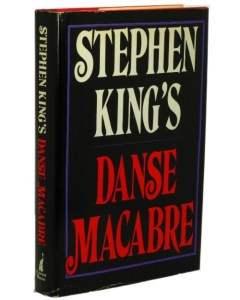Five Easy Pieces by Bev Vincent
When he was a student working in the University of Maine library, Stephen King inherited a ream (500 sheets) of oddly sized bright green paper, almost as thick as cardboard. (His future wife, Tabitha Spruce got one, too, except hers was robin’s egg blue.) This eccentric material seemed to invite him to write something special.
 Two years earlier, in a sophomore course on the romantic poets, he’d studied the Robert Browning poem “Childe Roland to the Dark Tower Came.” He wanted to write something long that embodied the feel of that poem, if not its exact sense. Seeing The Good, The Bad and The Ugly (while flying high on mescaline, he told an audience at Yale in April 2003) made him wonder if he could blend two different genres. He wanted to capture Tolkien’s sense of quest and magical fantasy set against Sergio Leone’s “almost absurdly majestic Western backdrop.”
Two years earlier, in a sophomore course on the romantic poets, he’d studied the Robert Browning poem “Childe Roland to the Dark Tower Came.” He wanted to write something long that embodied the feel of that poem, if not its exact sense. Seeing The Good, The Bad and The Ugly (while flying high on mescaline, he told an audience at Yale in April 2003) made him wonder if he could blend two different genres. He wanted to capture Tolkien’s sense of quest and magical fantasy set against Sergio Leone’s “almost absurdly majestic Western backdrop.”
He started the book during his final year at university. In March 1970, he wrote the iconic first line and the rest of the sections ”The Gunslinger” and “The Way Station” while living alone in a cabin on the banks of the Stillwater River (his three roommates had flunked out one by one, a progression reminiscent of the novella “Hearts in Atlantis”). In that cabin, he experienced ghostly, unbroken silence that undoubtedly affected the mood of what he was writing—unbroken, that is, except for the music of Johnny Winter. He believed at the time he was embarking on the longest popular novel in history, something he estimated would approach 3000 pages[1]. » Read more

